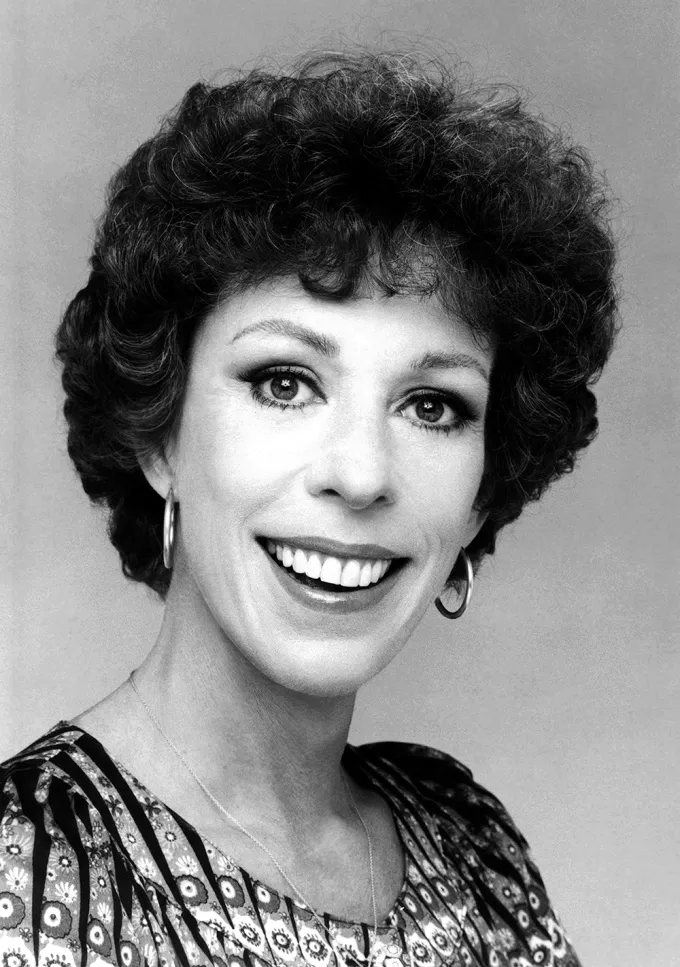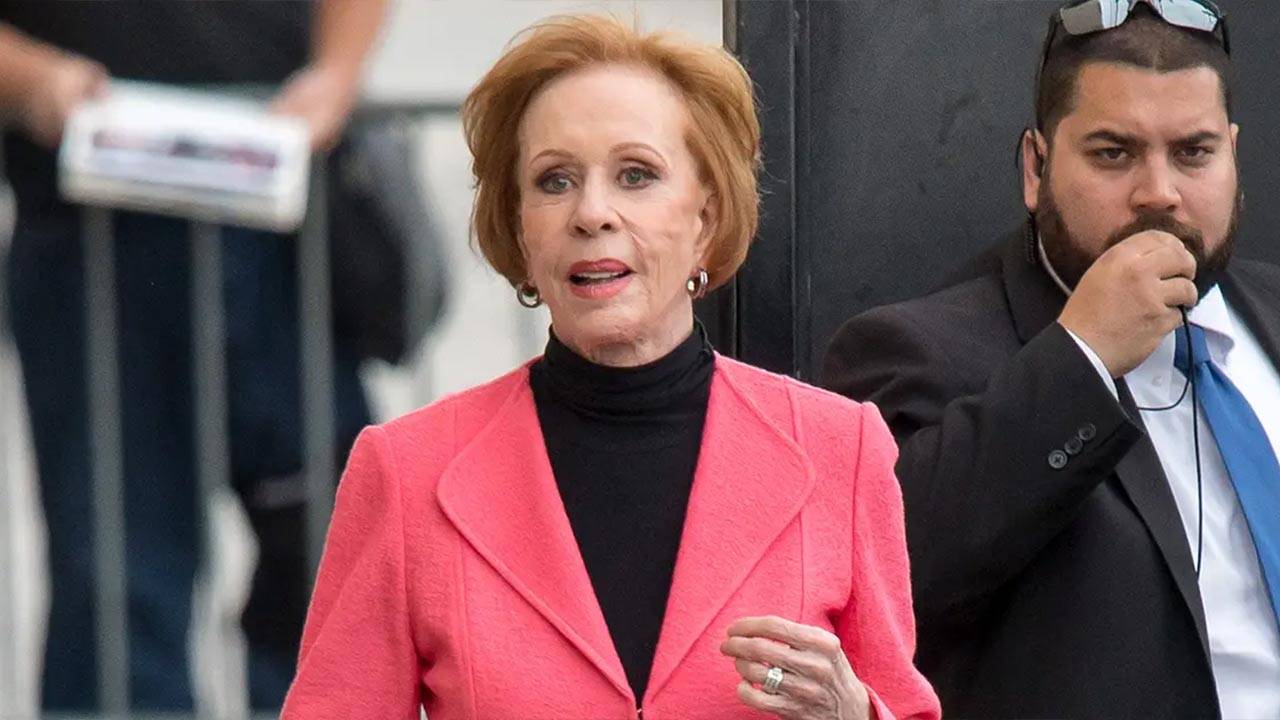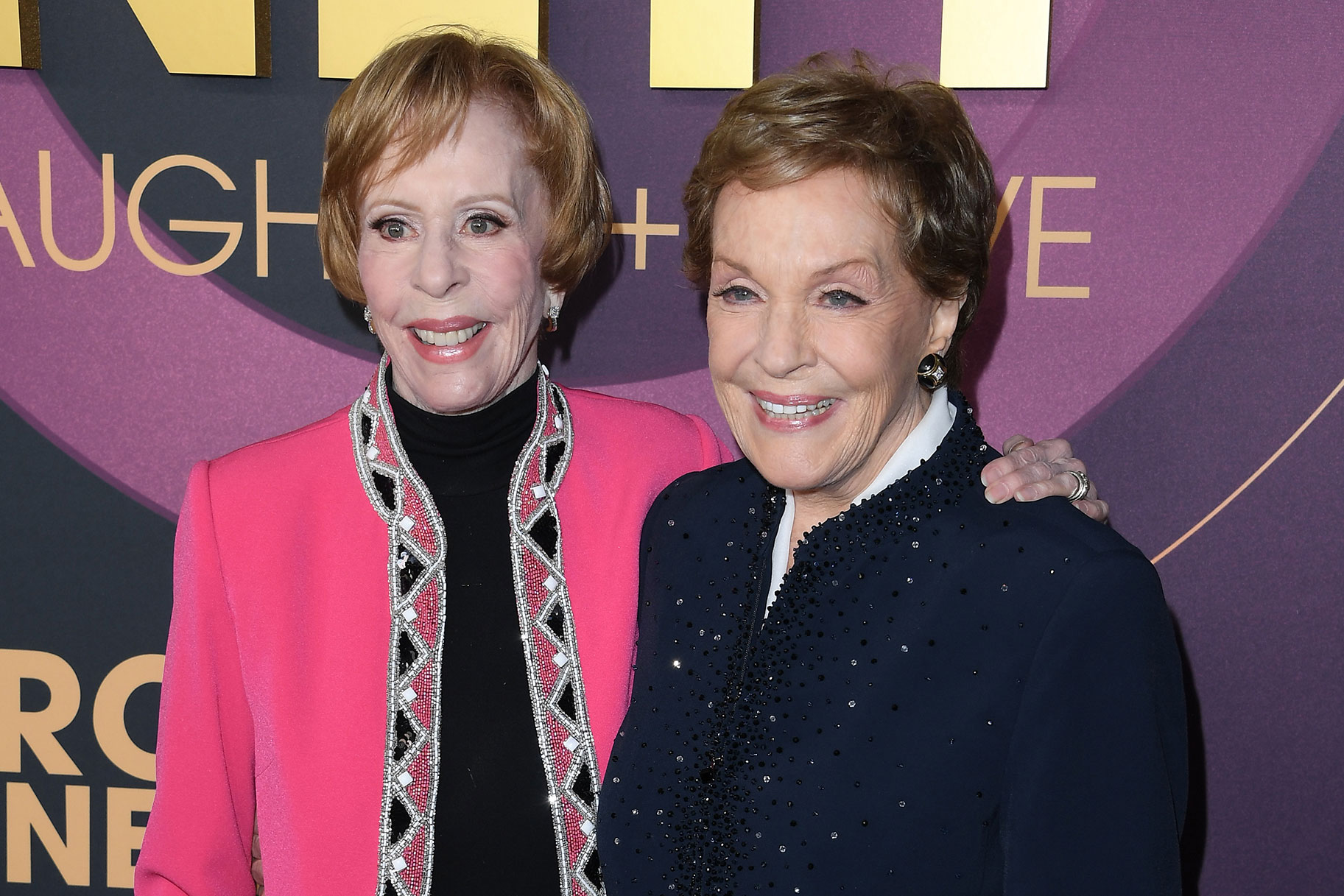Did Carol Burnett get sick?
Yes, Carol Burnett was diagnosed with breast cancer in 1987. She underwent a lumpectomy and radiation therapy and has been cancer-free since. Burnett has been an outspoken advocate for breast cancer awareness and early detection.
Burnett has also experienced other health issues, including a heart attack in 2002 and a stroke in 2018. Despite these setbacks, she has remained active in her career and continues to make public appearances.
- Jarrod Brandi Storage Wars Amazing Finds Epic Battles
- The Shocking Dark Side Of Willy Wonka A Hidden History
| NAME: | Carol Burnett |
|---|---|
| BIRTH DATE: | April 26, 1933 |
| OCCUPATION: | Actress, comedian, singer, and writer |
| HEALTH ISSUES: | Breast cancer, heart attack, stroke |
carol burnett ill
Carol Burnett is an American actress, comedian, singer, and writer. She is best known for her work on the variety show The Carol Burnett Show, which aired from 1967 to 1978. Burnett has won numerous awards for her work, including six Emmy Awards, a Golden Globe Award, and a Peabody Award.
Health Issues
In 1987, Burnett was diagnosed with breast cancer. She underwent a lumpectomy and radiation therapy and has been cancer-free since. Burnett has been an outspoken advocate for breast cancer awareness and early detection.
In 2002, Burnett suffered a heart attack. She underwent angioplasty and stenting and has since recovered. In 2018, Burnett suffered a stroke. She underwent rehabilitation and has since recovered.
Despite her health issues, Burnett has remained active in her career. She continues to make public appearances and has written several books.
carol burnett ill
Carol Burnett's battle with breast cancer in 1987 brought the importance of early detection and awareness to the forefront. Her recovery and subsequent advocacy work have had a significant impact on cancer awareness and support.
- Diagnosis and Treatment: Burnett's breast cancer diagnosis and subsequent lumpectomy and radiation therapy highlighted the importance of early detection and access to timely treatment.
- Advocacy and Awareness: Burnett's outspoken advocacy for breast cancer awareness and early detection has helped reduce stigma and encourage regular screenings.
- Emotional Impact: Burnett's personal experience with cancer has given her a unique perspective on the emotional toll it can take, emphasizing the need for support and counseling.
- Medical Advancements: Burnett's diagnosis and recovery coincided with significant advancements in breast cancer treatment, showcasing the importance of ongoing research and innovation.
- Celebrity Influence: As a beloved public figure, Burnett's experience brought attention to the prevalence of cancer and the need for regular check-ups, using her platform for social good.
- Inspiration and Hope: Burnett's successful recovery and continued advocacy have provided inspiration and hope to countless individuals facing cancer diagnoses.
Carol Burnett's journey with breast cancer has had a profound impact on cancer awareness, advocacy, and support. Her personal experience and unwavering commitment to raising awareness have made a lasting contribution to the fight against cancer.
| NAME: | Carol Burnett |
|---|---|
| BIRTH DATE: | April 26, 1933 |
| OCCUPATION: | Actress, comedian, singer, and writer |
| HEALTH ISSUES: | Breast cancer, heart attack, stroke |
Diagnosis and Treatment
Carol Burnett's breast cancer diagnosis in 1987 brought the crucial importance of early detection and timely treatment to the forefront. Her subsequent lumpectomy and radiation therapy underscored the benefits of prompt medical intervention in improving patient outcomes.
- Early Detection: Burnett's diagnosis emphasized the significance of regular mammograms and self-examinations in detecting breast cancer at its early stages, when treatment is most effective.
- Timely Treatment: Burnett's prompt access to lumpectomy and radiation therapy showcased the importance of timely treatment in preventing the spread of cancer and improving survival rates.
- Access to Care: Burnett's experience highlighted the need for equitable access to healthcare services, including cancer screening and treatment, for all individuals regardless of their background or circumstances.
- Public Awareness: Burnett's openness about her diagnosis and treatment raised public awareness about breast cancer, encouraging others to seek regular check-ups and prioritize their health.
Burnett's journey with breast cancer underscores the critical role of early detection and timely treatment in improving cancer outcomes. Her advocacy and personal experience have contributed to increased awareness and access to care, ultimately saving lives and empowering individuals in their fight against cancer.
Advocacy and Awareness
Carol Burnett's breast cancer diagnosis in 1987 propelled her into a powerful role as an advocate for breast cancer awareness and early detection. Her outspoken advocacy has significantly contributed to reducing the stigma associated with breast cancer and encouraging regular screenings.
- Breaking the Silence: Burnett's public disclosure of her diagnosis and treatment broke the silence surrounding breast cancer, normalizing conversations about the disease and dispelling misconceptions.
- Encouraging Self-Examinations: Burnett's advocacy emphasized the importance of regular self-examinations, empowering women to take an active role in their breast health.
- Promoting Mammograms: Burnett's platform encouraged women to prioritize mammograms, a crucial screening tool for early detection and improved survival rates.
- Reducing Stigma: Burnett's openness about her experience helped reduce the stigma associated with breast cancer, making it easier for women to seek support and treatment without shame or embarrassment.
Burnett's advocacy has undoubtedly played a vital role in increasing breast cancer awareness, promoting early detection, and empowering countless women to take charge of their health. Her tireless efforts have saved lives and continue to inspire others to make breast health a priority.
Emotional Impact
Carol Burnett's personal experience with breast cancer has provided her with a profound understanding of the emotional impact of cancer, both on patients and their loved ones. Her advocacy work has focused on providing support and resources to those facing the challenges of cancer.
- Coping with Diagnosis: Burnett's diagnosis with breast cancer in 1987 brought forth a wave of emotions, including fear, uncertainty, and isolation. Her experience underscores the importance of providing emotional support to patients during this difficult time.
- Emotional Side Effects: Cancer treatment can often lead to emotional side effects, such as anxiety, depression, and mood swings. Burnett's advocacy emphasizes the need for access to counseling and support groups to help patients manage these challenges.
- Impact on Relationships: Cancer can put a strain on relationships with family and friends. Burnett's experience highlights the importance of open communication, understanding, and support from loved ones.
- Long-Term Effects: Even after completing treatment, cancer survivors may continue to experience emotional challenges, such as post-traumatic stress disorder (PTSD). Burnett's advocacy work includes providing resources and support to help survivors cope with these long-term effects.
Carol Burnett's personal experience with cancer has given her a unique perspective on the emotional toll it can take. Her advocacy work has been instrumental in raising awareness about the importance of emotional support and counseling for cancer patients and their loved ones. Her efforts have made a significant difference in the lives of countless individuals facing the challenges of cancer.
Medical Advancements
Carol Burnett's breast cancer diagnosis in 1987 coincided with a period of significant progress in breast cancer treatment. These advancements played a crucial role in her successful recovery and have since improved the outcomes for countless other patients.
- Early Detection Techniques: Advancements in imaging technologies, such as mammography and ultrasound, have significantly improved the early detection of breast cancer. Early detection is critical for successful treatment and improved survival rates.
- Surgical Techniques: Minimally invasive surgical techniques, such as lumpectomy and sentinel lymph node biopsy, have reduced the extent of surgery required to remove cancerous tissue while preserving the breast.
- Radiation Therapy: Improvements in radiation therapy techniques, such as intensity-modulated radiation therapy (IMRT), have allowed for more precise targeting of cancerous tissue while minimizing damage to surrounding healthy tissue.
- Chemotherapy: The development of new chemotherapy drugs and regimens has improved the effectiveness of chemotherapy in treating breast cancer and reducing the risk of recurrence.
The ongoing research and innovation in breast cancer treatment have significantly improved the outlook for patients. Carol Burnett's experience serves as a reminder of the importance of continued investment in research to further improve treatment outcomes and ultimately find a cure for breast cancer.
Celebrity Influence
Carol Burnett's status as a beloved public figure gave her a unique platform to raise awareness about breast cancer and the importance of regular check-ups. Her personal experience with the disease allowed her to connect with audiences on a deeper level, breaking down stigmas and encouraging individuals to prioritize their health.
- Advocacy and Awareness: Burnett's public disclosure of her diagnosis and subsequent recovery became a powerful advocacy tool. She used her platform to educate the public about breast cancer, emphasizing the need for regular mammograms and self-examinations.
- Breaking Down Stigmas: By openly sharing her journey, Burnett helped break down the stigmas associated with cancer. Her candor encouraged others to speak more freely about the disease, seek support, and prioritize their health.
- Encouraging Regular Check-Ups: Burnett's experience highlighted the crucial importance of regular check-ups, regardless of age or perceived risk factors. Her advocacy encouraged individuals to take proactive steps to monitor their health and detect any potential issues early on.
- Inspiring Others: Burnett's resilience and positive attitude throughout her cancer journey inspired countless individuals facing similar challenges. Her story served as a beacon of hope and strength, reminding others that they are not alone and that there is life after a cancer diagnosis.
Carol Burnett's celebrity influence extended beyond entertainment, using her platform to make a meaningful impact on public health. Her advocacy for breast cancer awareness and regular check-ups has undoubtedly saved lives and empowered countless individuals to take control of their health.
Inspiration and Hope
Carol Burnett's successful recovery and continued advocacy for breast cancer awareness have served as a beacon of inspiration and hope for countless individuals facing cancer diagnoses. Her journey has provided a powerful reminder that even in the face of adversity, there is hope for a full and meaningful life.
- Overcoming Challenges: Burnett's personal experience with breast cancer and her subsequent recovery have demonstrated the power of resilience and determination. Her story has inspired others to face their own cancer diagnoses with courage and optimism.
- Emotional Support: Burnett's openness about her cancer journey has provided emotional support to cancer patients and their loved ones. By sharing her experiences, she has helped to reduce the stigma associated with cancer and create a sense of community among those affected by the disease.
- Advocacy and Awareness: Burnett's tireless advocacy for breast cancer awareness has raised awareness about the importance of early detection and regular screenings. Her efforts have undoubtedly saved lives by encouraging individuals to take proactive steps to protect their health.
- Hope for the Future: Burnett's ongoing advocacy and support for cancer research provide hope for the future. Her dedication to finding a cure for cancer serves as a reminder that even in the face of difficult challenges, there is always reason to hope.
Carol Burnett's journey with breast cancer has been a testament to the power of inspiration and hope. Her successful recovery, continued advocacy, and unwavering optimism have touched countless lives, reminding individuals that even in the darkest of times, there is always light.
Frequently Asked Questions (FAQs) Related to "Carol Burnett Ill"
This section addresses commonly asked questions and misconceptions regarding Carol Burnett's health and her advocacy work for breast cancer awareness.
Question 1: Did Carol Burnett fully recover from breast cancer?
Answer: Yes, Carol Burnett successfully underwent treatment for breast cancer in 1987 and has been cancer-free since. Her recovery is a testament to the importance of early detection and timely medical intervention.
Question 2: How did Carol Burnett's experience with breast cancer influence her advocacy work?
Answer: Burnett's personal journey with cancer fueled her passion for raising awareness and providing support to others facing the disease. She has used her platform to destigmatize breast cancer, encourage regular check-ups, and advocate for increased funding for cancer research.
Summary: Carol Burnett's recovery from breast cancer and her subsequent advocacy efforts have made a significant impact on public health. Her story serves as an inspiration for cancer survivors and a reminder of the crucial importance of early detection and ongoing support for those affected by cancer.
Conclusion
Carol Burnett's journey with breast cancer has profoundly impacted the landscape of cancer awareness and support. Her successful recovery and unwavering advocacy have served as a beacon of hope and inspiration for countless individuals facing cancer diagnoses. Burnett's personal experience has fueled her tireless efforts to destigmatize breast cancer, promote early detection, and support cancer research.
Through her advocacy work, Burnett has raised awareness about the importance of regular check-ups, encouraged open conversations about cancer, and provided emotional support to patients and their loved ones. Her legacy extends beyond entertainment, as she has used her platform to make a meaningful impact on public health and improve the lives of those affected by cancer. Carol Burnett's story serves as a reminder that even in the face of adversity, there is hope for a full and meaningful life, and that through collective efforts, we can work towards a future where cancer is no longer a threat.



Detail Author:
- Name : Quentin Torp
- Username : melvina.johns
- Email : runolfsson.keon@kunze.com
- Birthdate : 1973-05-02
- Address : 782 Goyette Estate Jamelberg, MI 17693-7204
- Phone : +13515463594
- Company : Schiller Inc
- Job : Animal Scientist
- Bio : At aut dolores recusandae saepe qui. Cum soluta vitae sint deleniti. Hic qui dicta sequi autem eveniet quibusdam.
Socials
tiktok:
- url : https://tiktok.com/@destinyzemlak
- username : destinyzemlak
- bio : Enim et et omnis minima. Est debitis non et rerum dolores.
- followers : 1303
- following : 335
twitter:
- url : https://twitter.com/dzemlak
- username : dzemlak
- bio : Praesentium dolores enim dignissimos. Est dignissimos eius sed quaerat. Eos id delectus voluptas dolore placeat. Ut unde fugit sequi delectus eaque.
- followers : 4343
- following : 1612
facebook:
- url : https://facebook.com/zemlak1977
- username : zemlak1977
- bio : Veniam quod aspernatur ducimus libero assumenda mollitia consequatur.
- followers : 490
- following : 2705